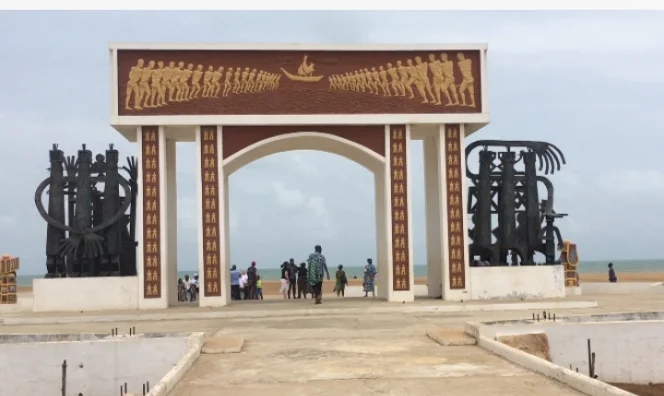By Joan Odafe
Benin Republic is repositioning itself as a premier destination for culture, heritage and tourism by blending its deep historical roots with a bold new vision.
Tucked away in the heart of West Africa, Cotonou, the capital of Benin, is a cultural goldmine of picturesque surroundings and untapped potential.
The vibrant city, with its warm hospitality and rich history, is emerging as a must-visit destination for adventurous tourists and strategic investors.
From the serene beauty of the Atlantic coastline, with beautiful beaches, to the sacred forest and slave trade route, Cotonou offers a rare blend of traditional and modern attractions.

During a two-day tour of Benin by the National Association of Tour Operators (NATOP), stakeholders acknowledged that the Beninese Government had implemented various initiatives to boost economic growth, including investments in infrastructure and tourism development.
A government tourism consultant, Cléopatre Kougniazonde, describes the country as “a key” to culture and authenticity.
Kougniazonde says the government, under President Patrice Talon, has declared tourism a priority sector, investing in infrastructure, hospitality training and cultural preservation.
This, she said, is aimed at transforming Benin into a holistic experience beyond leisure.
“What we’re doing goes beyond bringing people to come and go.
“It’s about transforming lives, restoring balance and contributing to national development,” she said.
Citing the adaptable floating village of Ganvié, popularly referred to as the ‘Venice of Africa’, to the historical slave trade port of Ouidah, Kougniazonde says Benin’s destinations are being reimagined as both experience and memory.
She says many sites, including a reconstructed last slave ship in Ouidah and a new museum honouring the kings and queens of Abomey, are being upgraded to support immersive storytelling.
Kougniazonde says the legacy of the famed Agodjié female warriors, which inspired films such as The Woman King and Black Panther: Wakanda Forever, is being preserved in museums and a growing cultural trail at international tourists and diaspora returnees.

Other legacies include the construction of Africa’s second-largest Amazon Statue and the world’s longest graffiti wall, all celebrating Beninese identity.
“We fought for 130 years to bring back our royal treasures.
“Now we are taking ownership of our narrative,” she said.
The event, which also serves as a bridge-building platform between Nigeria and Beninese tourism stakeholders, aims at promoting intra-African travel.
The Co-founder of God’s Own Travel Agency, Olanma Ojukwu, calls for a unified West African tourism identity and easier cross-border movement for travellers.
Advocating a common visa policy modeled on East Africa’s single-entry system, Ojukwu says: “We need to begin to make this noise, one visa for at least four West African countries.
“It’s what foreign tourists keep asking for.”
Ojukwu, who is also a Nigerian-Beninese tour operator of over 25 years, says the region needs to move from competition to collaboration by marketing its special highlights as complementary.
“We’re not competitors. Your strength complements mine,” she said.
Tourism stakeholders from Nigeria were taken on a familiarisation trip to experience Benin’s attractions firsthand.
Some of the destinations explored include the Sacred Forest, Python Temple and the slave trade route at Ouidah.
The group also visited Casa del Papa, an eco-resort flanked by a lagoon and the Atlantic Ocean.
The trip ended at Ganvié, a village where the residents do everything on water.

The President of NATOP, Mrs Bolaji Mustapha, says the collaboration is part of a broader regional goal to promote intra-African tourism especially during Summer when many West Africans travel to Europe or the U.S.
“We said, why not market Africa this Summer?
“We are beginning from Benin.
“You need to experience the product before selling it. That’s why we’re here,” she said.
Also, the President of Consortium Tourism by Millions of Benin CTMB, Dine Bouraima, says the collaboration will be beneficial in boosting both nations’ tourism industry.
Bouraima, who is also the Founder of Benin Royal Hotel, emphasises the need for African tourists to explore destinations within the continent.
He assured the tour operators of his commitment to ensure that Nigeria and Benin promote Africa destinations.
The General Manager of Azalai Hotel, Cotonou, Mariam Posset, commended the tourism stakeholders from Nigeria, adding that their presence expressed the will to build an integrated and prosperous tourism sector in West Africa.
Posset says the similarities between Nigeria and Benin, including languages such as Yoruba, is evident that both nations will work well together and leave a lasting impact.
-Odafe writes for the News Agency of Nigeria



